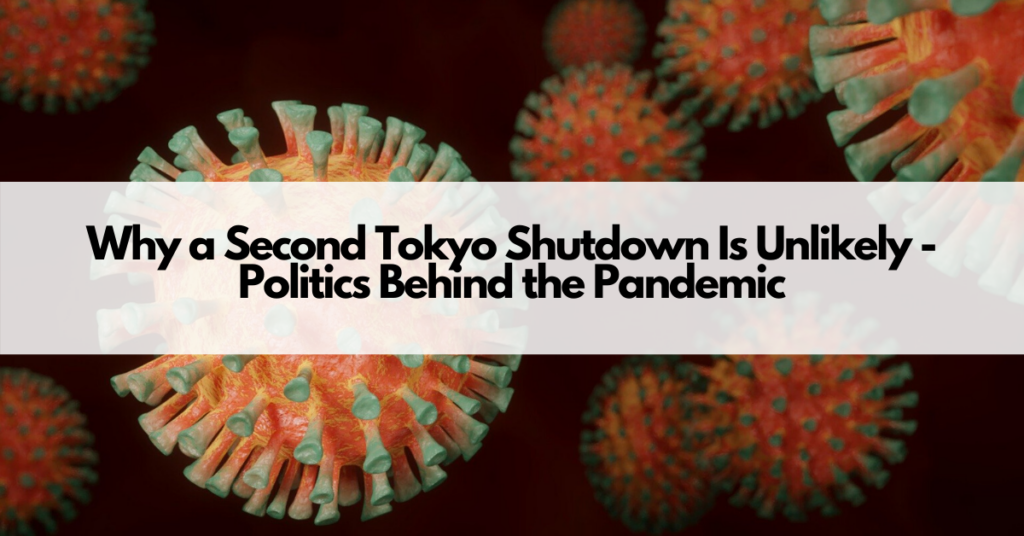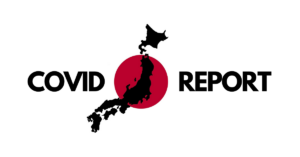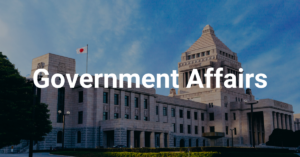
Why a Second Tokyo Shutdown Is Unlikely – Politics Behind the Pandemic
The number of new coronavirus cases has spiked in Tokyo, with two straight days with more than 200 new infections. This has prompted fears that the city’s healthcare system will become overburdened or a much-anticipated second wave has arrived. Despite these concerns, it is unlikely that the capital will reenter a state of emergency and voluntary shutdown in the near future.
Prime Minister Abe Shinzo lifted Japan’s state of emergency in late May, and requests to refrain from unnecessary inter-prefectural travel were removed in June. The attempt to restart economic activity comes with some protocols to guard against a second wave of infections – Tokyo Governor Koike Yuriko said that a “Tokyo Alert” advisory would be issued if case numbers cross a certain threshold, and some restrictions could once again be imposed.
However, even as Tokyo and its surroundings face a steady increase in cases, there is little indication from either the national or prefectural government that another state of emergency is imminent. The Tokyo Metropolitan Government has issued several requests concerning restaurants and facilities that comprise Tokyo’s yoru no machi, or nightlife, but they fall short of the restrictions that were previously suggested.
Prime Minister Abe has indicated he does not favor a second state of emergency, and Governor Koike said the surge in cases does not constitute a second wave. PM Abe said on June 4 that Japan is not in a situation that requires another such declaration, and Nishimura Yasutoshi, the Minister of State for Economic and Fiscal Policy and the head of the government’s coronavirus response, said that “no one wants to declare a state of emergency anymore.”
The obvious reason for this thinking is fear of the economic damage. The economic toll of the first state of emergency, which included travel restrictions and widespread business closures, was extremely costly. June saw the lowest business sentiment among large Japanese corporations in over a decade, and many businesses are facing insolvency. Consumers are also feeling anxious, and household spending in May was down 16.2% from the previous year. Another stoppage effectively guarantees a new round of economic pain.
After winning re-election on Sunday, Governor Koike reaffirmed her commitment to balancing between mitigating the spread of the coronavirus and encouraging economic recovery. While her position is secure, the LDP must weigh the costs of an economic shutdown when assessing its prospects in the next general election, which many believe will take place this fall. The Abe Cabinet has been rocked by various scandals and is facing heavy criticism of its response to the pandemic, and its approval rating has fallen below 40%, the lowest it has been since April 2018. Current polling suggests there is little risk of the opposition wresting control of the government from the LDP, but further economic suffering could cut into the ruling coalition’s electoral margin.
The possibility of a fall election is an important part of any decision concerning a potential state of emergency. While much of the public supports another emergency declaration, it is also true that another economic downturn would severely harm the LDP’s electoral performance. It is important to note that the LDP’s response to the financial crisis and subsequent recession was a key factor in the LDP’s abysmal performance during the 2009 general election.
Without a more substantial increase in cases, political and economic circumstances mean that a return to a state of emergency is unlikely. Hospital occupancy remains at tolerable levels and the government has moved forward with plans to reopen the economy. The government’s current approach is to limit transmission through tracing and cluster-tracking, and it will likely remain that way for the foreseeable future.
For more insight about the impact of the coronavirus pandemic on politics and public policy in Japan, please check out Langley Esquire’s free COVID-19 report, or sign up for our mailing list to this analysis sent directly to your inbox.



